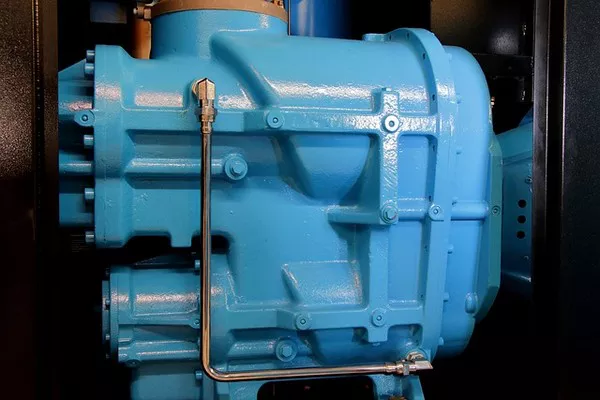Compressed air is a crucial utility in various industries, from manufacturing and construction to healthcare and food processing. Traditional air compressors rely on oil for lubrication and cooling, but concerns over oil contamination, maintenance costs, and environmental impact have led to the development of oil-less compressors. These innovative machines offer a range of benefits, from cleaner air output to reduced maintenance requirements. In this article, we delve into the inner workings of oil-less compressors, exploring their mechanisms, applications, and advantages.
Mechanisms of Oil-Less Compressors:
Oil-less compressors utilize alternative methods for lubrication and cooling, eliminating the need for oil in the compression process. There are several key mechanisms employed in oil-less compressor designs:
Dry Compression: Unlike traditional compressors that rely on oil for lubrication, oil-less compressors utilize dry compression techniques. This means that the compression chamber and moving parts are designed to operate without the need for oil lubrication. Instead, specialized materials and coatings are used to reduce friction and wear, ensuring smooth operation without oil contamination.
Teflon Coatings: Many oil-less compressors feature Teflon-coated components such as piston rings, cylinders, and seals. Teflon, known for its low friction properties and resistance to chemical corrosion, helps to minimize wear and tear on moving parts while providing effective sealing within the compression chamber.
Self-Lubricating Materials: Some oil-less compressors incorporate self-lubricating materials such as carbon graphite or synthetic polymers in critical components. These materials offer inherent lubricating properties, reducing friction and extending the lifespan of the compressor without the need for external lubrication.
Air Cooling: In oil-less compressors, air cooling is commonly used to dissipate heat generated during compression. Heat exchangers or fins are often integrated into the compressor design to facilitate efficient cooling without the use of oil-based cooling systems. This ensures that the compressed air remains at a suitable temperature for downstream applications.
Applications of Oil-Less Compressors:
Oil-less compressors find wide-ranging applications across various industries where clean, oil-free compressed air is essential. Some common applications include:
Medical and Healthcare: Oil-less compressors are widely used in medical and healthcare facilities for powering medical devices, such as ventilators, dental chairs, and surgical tools. The oil-free air output ensures compliance with stringent hygiene standards and prevents contamination in sensitive medical environments.
Food and Beverage: In the food and beverage industry, oil-less compressors are employed for tasks such as packaging, bottling, and food processing. The absence of oil eliminates the risk of oil contamination in food products, ensuring compliance with food safety regulations and maintaining product integrity.
Electronics Manufacturing: Oil-less compressors are preferred in electronics manufacturing processes where clean, oil-free air is required for sensitive electronic components. These compressors are used for tasks such as PCB cleaning, soldering, and component testing, where even trace amounts of oil contamination can lead to product defects.
Laboratories and Research Facilities: Laboratories and research facilities rely on oil-less compressors for various applications, including gas chromatography, spectroscopy, and sample analysis. The clean, dry air output of oil-less compressors is essential for maintaining the accuracy and reliability of analytical instruments.
See Also The Cost of a Central AC Compressor: A Comprehensive Guide
Advantages of Oil-Less Compressors:
Oil-less compressors offer several advantages over traditional oil-lubricated compressors, making them increasingly popular in various industries. Some key advantages include:
Oil-Free Air Quality: Perhaps the most significant advantage of oil-less compressors is their ability to deliver clean, oil-free compressed air. This ensures that the compressed air is free from contaminants, making it suitable for critical applications where air quality is paramount, such as medical and food processing.
Reduced Maintenance Requirements: Oil-less compressors typically have lower maintenance requirements compared to oil-lubricated compressors. Without the need for oil changes, filter replacements, and lubrication system maintenance, operators can save time and reduce ongoing maintenance costs.
Environmental Friendliness: By eliminating the use of oil in the compression process, oil-less compressors offer environmental benefits such as reduced oil consumption, elimination of oil disposal requirements, and lower carbon emissions. This aligns with the growing emphasis on sustainability and eco-friendly practices in modern industries.
Enhanced Reliability and Longevity: The use of specialized materials and coatings in oil-less compressors contributes to enhanced reliability and longevity. By minimizing wear and reducing the risk of oil-related issues such as contamination and breakdowns, oil-less compressors offer improved durability and uptime.
Conclusion:
Oil-less compressors represent a significant technological advancement in the field of compressed air systems, offering clean, oil-free compressed air for a wide range of applications. By employing innovative mechanisms such as dry compression, Teflon coatings, and air cooling, oil-less compressors deliver reliable performance with reduced maintenance requirements and environmental impact. As industries continue to prioritize air quality, efficiency, and sustainability, the adoption of oil-less compressors is expected to grow, driving innovation and advancement in compressed air technology.

